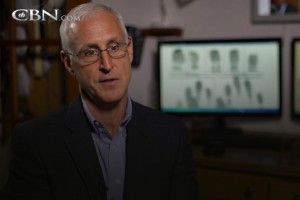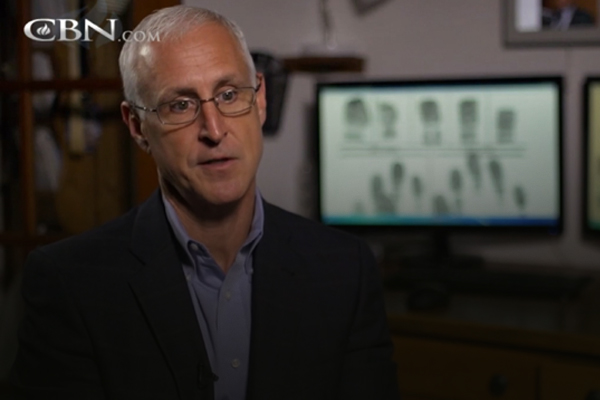
Yesterday, CBN posted the story of my journey from “belief that” to “belief in”. It’s really the first time I’ve told the story this completely, and I hope it will help you see the role evidence can play in moving someone from intellectual assent to volitional submission:
For me, the transition from “belief that” to “belief in” can be summarized simply. My investigation of Jesus brought me to a place of certainty and confidence. What I read about Jesus in the Gospels led me to “belief that”. But what I read about me in the Gospels led me to “belief in”. For months I had been focused on testing the reliability of the Gospels without really embracing the teachings of Jesus related to my own condition as a human. I can still remember where I was when I first read through the accounts from a new perspective, searching this time for what they said about my own human nature. It was convicting.
I was never someone who saw myself as a bad person. In fact, my role as a police officer only amplified my own pride and sense of “goodness”. I took bad guys to jail. I thought I understood the difference between right and wrong, good and bad. I was on one side of the bars; bad people were on the other. But the New Testament eroded my confidence in my own righteousness. As I saw myself on the pages of Scripture, I had to admit their accuracy. They described me perfectly. The more I read, the more I recognized my need for a Savior. Suddenly the Gospel made sense.
Every worldview asks and answers three questions: How did we get here, why is it so messed up, and how do we fix it? As I came to understand the answer to the second question, I was ready to embrace the answer to the third. Our problem is rebellion, the same kind of rebellion I had been demonstrating so vividly for thirty-five years as a non-believer. How can we fix it? The Gospel. When I first stepped into an evangelical church and heard the pastor describe Jesus, I wasn’t ready to accept the message of Salvation. I had to begin by examining the Gospel eyewitness accounts:
This investigation of the Gospels led me to a place of readiness. I was prepared, as a result of my investigation, to hear what Jesus had to say about me. Make no mistake about it, my old “belief that” was not a saving faith. But my present “belief in” would not have been nearly as robust and animated if not for the evidential confidence I gained from my initial investigation. “Belief in,” when informed by the evidence required for “belief that,” is far more likely to engage the world in a vigorous, confident manner. This is an often overlooked aspect of evidential Christian Case Making (apologetics). But, informed trust looks and feels different than blind faith. I can see the difference when I travel across the country. When our questions are answered and the evidences are clear, we begin to live differently. When we are confident the Gospels are an evidentially accurate description of human history, we are far more likely to share our trust in the Gospel of Salvation. Informed trust looks and feels different than blind faith. Share on X

J. Warner Wallace is a Dateline featured Cold-Case Detective, Senior Fellow at the Colson Center for Christian Worldview, Adj. Professor of Christian Apologetics at Talbot School of Theology, Biola University, author of Cold-Case Christianity, God’s Crime Scene, and Forensic Faith, and creator of the Case Makers Academy for kids.
Subscribe to J. Warner’s Daily Email
J. Warner Wallace is a Dateline featured cold-case homicide detective, popular national speaker and best-selling author. He continues to consult on cold-case investigations while serving as a Senior Fellow at the Colson Center for Christian Worldview. He is also an Adj. Professor of Christian Apologetics at Talbot School of Theology, Biola University, and a faculty member at Summit Ministries. He holds a BA in Design (from CSULB), an MA in Architecture (from UCLA), and an MA in Theological Studies (from Gateway Seminary).

































Pingback: The Difference Between Believing the Gospels an...
Pingback: Sermon: The Third Plague: Lice | Montana Pastor
Pingback: Every Easter Sermon Is Built on the Reliability of the Gospel Eyewitnesses | Apologetics.com
Pingback: Real Clear Apologetics | What is the Meaning of the Cross?
Pingback: What is the Meaning of the Cross? | A disciple's study
Pingback: What is the Meaning of the Cross? | Apologetics ForumApologetics Forum
Pingback: What is the Meaning of the Cross? | New York Apologetics
Pingback: ¿Cuál es el significado de la cruz? - Oraciones de Hoy